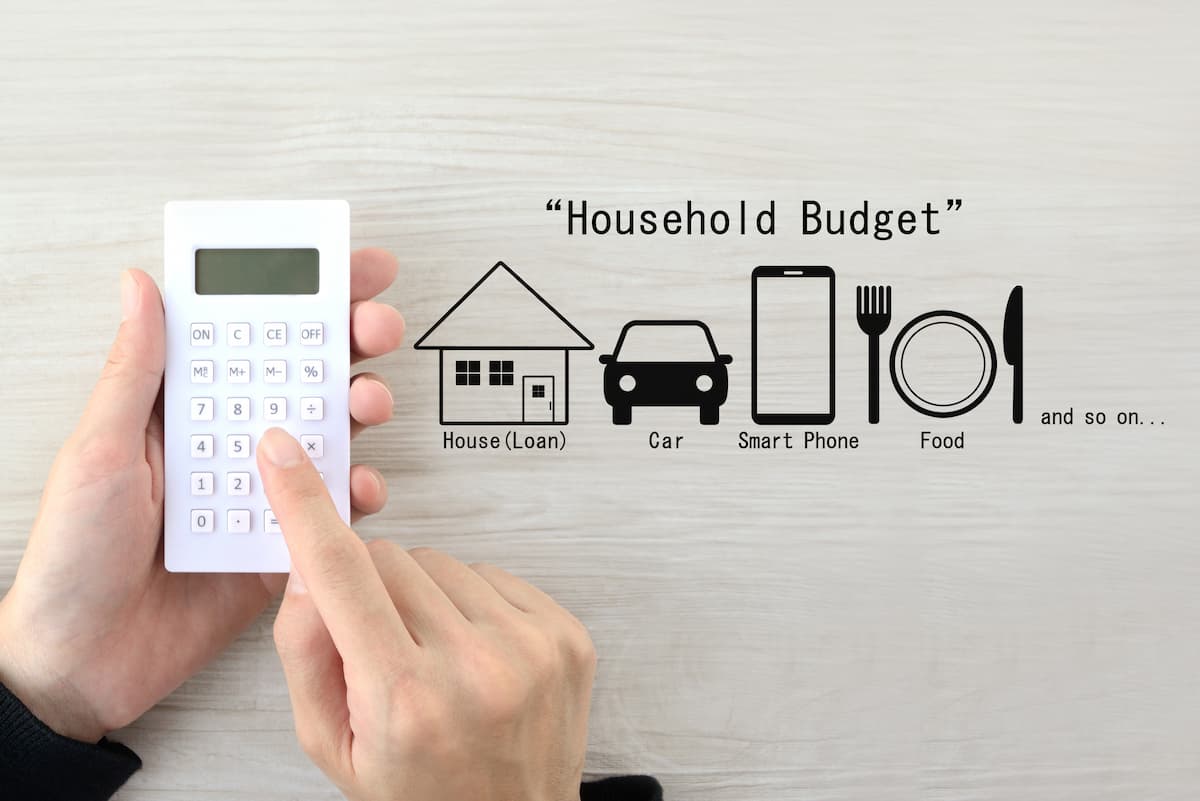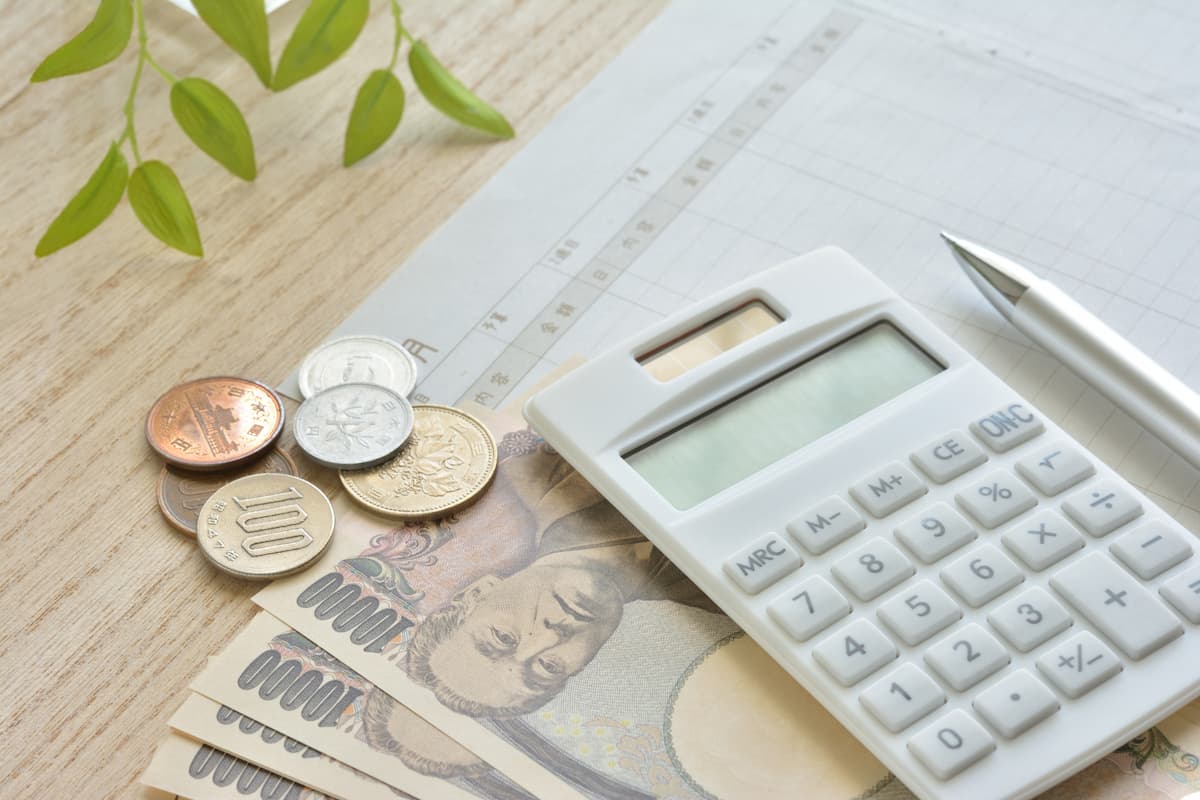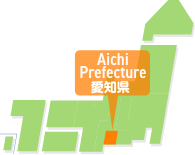How much does it cost to live alone in Japan? Here are some ways to save money

Hello, this is Kano from JAC (Japan Association for Construction Human Resources).
If you are planning to live alone in Japan, it is a good idea to know how much living expenses will cost.
It is also important to save money on a limited income.
This time, we will introduce the average monthly living expenses for a single person and some tips on how to save money.
How much do you need to spend on living expenses if you live alone in Japan? What is the average monthly cost of living?
Here we will introduce data on general living expenses when living alone in Japan.
According to the 2023 Household Survey *1 published by the Ministry of Internal Affairs and Communications, the average expenditure for a single person is 167,620 yen.
*1 Table 3: "Monthly income and expenditure per household (by city class and region)"
The average cost of living for a single person, broken down by age, is as follows:
- Age 34 and under: 170,281 yen
- 35-59 years old: 194,438 yen
- 60 years old and over: 152,743 yen
Among those under 34 years old, there are many students as well as working people.
It also includes people aged 60 or older who have retired.
Therefore, we will focus on data on living expenses for those aged 35 to 59, who are the majority working people.
Average monthly living expenses breakdown
Here is a breakdown of the average monthly living expenses across the country.
Looking at data from the Ministry of Internal Affairs and Communications' 2023 "Household Survey *2" for people aged 35 to 59, the breakdown of main living expenses is as follows:
*2 Table 2: "Monthly income and expenditure per household (by gender and age group)"
- Food expenses: 46,498 yen
- Rent★: 34,261 yen
- Utility bills: 12,471 yen
- Furniture and household items: 5,377 yen
- Clothing expenses: 4,583 yen
- Medical expenses: 7,252 yen
- Transportation cost: 29,865 yen
- Entertainment expenses (hobbies, play, etc.): 20,447 yen
- Communication costs (smartphone and internet charges, etc.): 11,457 yen
- Entertainment expenses: 11,888 yen
- Other (beauty, tobacco, etc.): 33,683 yen
★About rent
If the company provides housing, rent will be around 15,000 to 20,000 yen.
Also, the "Rent" item above is the average amount including those who do not rent a home (those whose rent is 0 yen).
The national average rent for 1LDK, 1DK, and 1K *3 floorplans, which are common for people living alone, is 52,584 yen *4.
*3 1LDK = Living room, dining room, kitchen and one room / 1DK = Dining room, kitchen and one room / 1K = Kitchen and one room
*4 National Rental Property Management Business Association "National Rent Trends (August 2024 survey)"
Average monthly living expenses by region
The cost of living also varies depending on the region.
According to data from the Ministry of Internal Affairs and Communications' 2023 "Household Survey *5," the average monthly living expenses by region are as follows.
*5 Table 3: Monthly income and expenditure per household (by city class and region)
- Hokkaido and Tohoku region: 151,748 yen
- Kanto region: 178,888 yen
- Hokuriku and Tokai regions: 167,890 yen
- Kinki region: 167,202 yen
- Chugoku and Shikoku regions: 149,639 yen
- Kyushu and Okinawa region: 158,877 yen
The cost of living in the Kanto region, where Tokyo is located, is the highest.
The cost of living in the Chugoku/Shikoku, Hokkaido, and Tohoku regions is cheaper than in the Kanto region.
The cost of living that varies most by region is rent.
According to a survey by the National Rental Management Business Association *6, the prefecture with the highest rent is Tokyo, and the prefecture with the lowest rent (for 1LDK, 1DK, and 1K apartments).
- Tokyo: 75,452 yen
- Tokushima: 36,664 yen
Tips for saving on living expenses when living alone in Japan

It costs money to live alone.
Many people want to save as much money as possible.
Here are some easy-to-understand tips on how you can save money.
I'll also answer some frequently asked questions.
How to save money living alone?
Some of the easiest expenses to save on are food, utility bills, transportation, and entertainment.
Here are some ways to save money.
Food expenses
Cooking at home is often cheaper than eating out.
It's important not to buy too much food and to use it all up before it goes bad.
If you decide what you want to buy and write it down on paper or your smartphone before going shopping, you won't buy things you don't need.
It's also a good idea to bring a packed lunch and a water bottle to work.
Utility bills
Electricity, gas, and water bills are collectively referred to as "utility bills."
Especially in summer and winter, it costs money to use air conditioners and heaters.
Here are some ways to save on your water and energy bills:
- Wear cool (warm) clothes
- Lower the temperature of the water
- Don't leave the water running
- Turn off lights you aren't using
- Unplug appliances you are not using
Transportation costs
You can save on transportation costs by walking or cycling as much as possible.
In urban areas, there are designated places where you can park your bicycle.
If you park your bike in a no-parking area, it may be removed.
You often have to pay to get your bike back after it has been removed.
In addition to how to park your bicycle, there are many other traffic rules for bicycles.
This column explains this in detail.
I don't understand the bicycle traffic rules in Japan! Here are some traffic rules and things to be aware of.
Entertainment expenses
Entertainment expenses are expenses spent on hobbies and leisure activities, such as buying books and taking lessons.
Entertainment expenses are an easy item to cut.
However, some people may feel stressed if they save too much.
Decide how much you can spend first and then try not to spend more than that.
Entertainment expenses
These are expenses incurred when interacting with others, such as drinking parties, weddings, and funerals.
I often go to drinking parties with friends or coworkers.
However, if the cost of a drinking party seems like a burden, consider whether you really need to attend.
Since salaries are higher in urban areas (such as Tokyo), will you have no problems with living expenses?
If your salary is high, you might feel like you don't need to save.
It is true that salaries are high in urban areas such as Tokyo.
However, prices are high, as are transportation and rent costs.
Therefore, take-home pay may be higher in rural areas.
Don't settle on a job just because it pays a high salary.
Summary: Know the cost of living alone in Japan and how to save money to enjoy life
In order to live on a limited salary, it is reassuring to know an estimate of the costs of living.
The average expenditure for a single person in Japan is 167,620 yen.
The main costs include:
- Food expenses
- rent
- Utility bills
- Furniture and household goods expenses
- Clothing expenses
- Medical expenses
- Transportation costs
- Entertainment expenses (hobbies, leisure, etc.)
- Communication costs (smartphone and internet charges, etc.)
The cost of living also varies depending on where you live.
You can save on living expenses.
Food, transportation, entertainment, and social expenses are particularly easy to save on.
Only spend money on things you truly need.
About us, JAC
JAC(Japan Association for Construction Human Resources)is an organization that supports all Specified Skilled Workers working in the Japan construction industry. We work with companies that accept Specified Skilled Workers to create a work environment that is easy for everyone to work in.
We're also taking the exams you need to become a Specified Skilled Workers!
And JAC has received many requests for job offers from companies that want Specified Skilled Workers to work for.
Specified Skilled Workers Wanted! Job Listings
For those of you who want to work in Japan using Specified Skills, we are introducing jobs that match your occupation and aspirations!
If you have any problems, please feel free to contact us!








